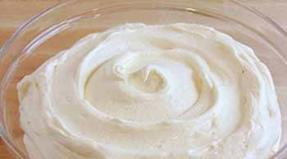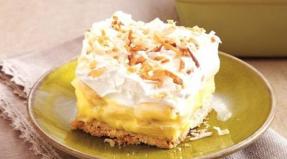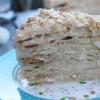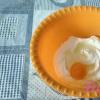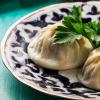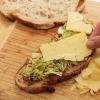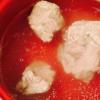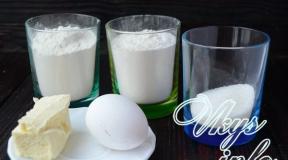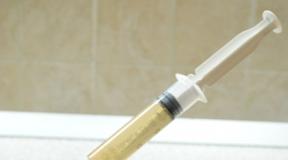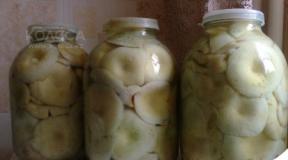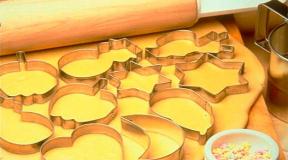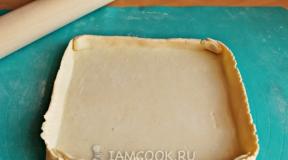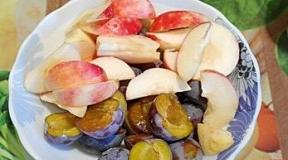Poems about tea, statements, creativity, phrases, aphorisms, quotes from famous people about tea. Tea hunters in Russian literature The boy was pouring cream with an olga's hand
Ivan Goncharov,"Oblomov"
“He (Oblomov) imagined himself sitting on a summer evening on the terrace, at a tea table, under a canopy of trees impenetrable to the sun, with a long pipe and lazily sucking in the smoke, pensively enjoying the view from behind the trees, the coolness, the silence; and in the distance fields turn yellow, the sun sinks behind the familiar birch forest and blushes a pond as smooth as a mirror; steam rises from the fields; it gets cool, dusk comes; the peasants are walking home in droves.
An idle mongrel sits at the gate; there you can hear cheerful voices, laughter, balalaika, girls play with burners; his little ones frolic around him, climb on his knees, hang on his neck; at the samovar sits ... the queen of everything around her, his deity ... a woman! wife! Meanwhile, in the dining room, decorated with graceful simplicity, welcoming lights shone brightly, a large round table was being laid; Zakhar, promoted to majordomo, with completely gray sideburns, lays the table, arranges the crystal with a pleasant ringing and lays out the silver, continually dropping a glass or a fork on the floor; sit down for a hearty supper "
“Everything in Pshenitsyna's house breathed with such an abundance and completeness of the economy, which had not happened before, when Agafya Matveyevna lived in the same house with her brother. The kitchen, the closets, the buffet - everything was set by suppliers with dishes, large and small, round and oval dishes, gravy boats, cups, piles of plates, cast iron, copper and earthen pots. In the cupboards was laid out and his own, bought long ago and never pledged now, Oblomov's silver and silver. Whole rows of huge, pot-bellied and miniature teapots and several rows of porcelain cups, simple, with paintings, with gilding, with mottos, with flaming hearts, with the Chinese. Large glass jars with coffee, cinnamon, vanilla, crystal teapots, cages with oil, with vinegar "
Alexander Pushkin, "The Captain's Daughter»
“In the evening we got together in the living room near the samovar, merrily talking about the past danger. Marya Ivanovna was pouring tea, I sat down beside her and took care of her exclusively. My parents seemed to look favorably on the tenderness of our relationship. Until now, this evening lives on in my memory. I was happy, completely happy - but are there many such minutes in a poor human life? "
Alexander Pushkin, "Eugene Onegin»
In the evening sometimes converged
Good family neighbors,
Unceremonious friends
And to push, and to speak up,
And laugh about what.
Time passes; meanwhile
They will order Olga to cook tea,
Dinner is there, it's time to sleep there,
And the guests are coming from the yard.
…
It was getting dark; on the table, shining,
The evening samovar hissed,
Chinese teapot heating;
Light steam billowed beneath him.
Spilled by Olga's hand,
Through the cups in a dark stream
The fragrant tea was already running
And the boy served the cream.
Alexander Blok, "On the street - rain and slush"
…
Deaf longing for no reason
And doom obsessive frenzy.
Come on, let's prick the torches,
Let's inflate a samovar!
Maybe even for a tea hangover
My grumbling speeches
Warm up with random fun
Your sleepy eyes.
For loyalty to the ancient rank!
For living slowly!
Perhaps, and steam up the torment
Soul of tea!
Ivan Turgenev, "Fathers and Sons"
“I think the tea is ready? - said Odintsova. - Gentlemen, let's go; Auntie, please have some tea.
The princess silently got up from her chair and was the first to leave the drawing-room. They all followed her into the dining room. A Cossack in livery noisily pushed the pillow-covered, also cherished, chair away from the table, into which the princess sat; Katya, who was pouring tea, was the first to give her a cup with a painted coat of arms. The old woman put honey in a cup (she found that drinking tea with sugar was both sinful and expensive, although she herself did not spend a penny on anything) "
“The dinner, although hastily prepared, came out very good, even plentiful; only the wine, as they say, played around a little: the almost black sherry bought by Timofeich in the city from a merchant he knew responded with either copper or rosin; and the flies also got in the way ... Vasily Ivanovich paced the room all the time of dinner and, with a completely happy and even blissful air, spoke of the grave fears that Napoleonic politics and the confusion of the Italian question had instilled in him. Arina Vlasyevna did not notice Arkady, did not regale him; propping her round face on her fist, to which her puffy, cherry-colored lips and moles on her cheeks and above her eyebrows gave a very good-natured expression, she did not take her eyes off her son and kept sighing; she was deathly anxious to know how long he had arrived, but she was afraid to ask him. “Well, as he says for two days,” she thought, and her heart sank. After roasting, Vasily Ivanovich disappeared for a moment and returned with an uncorked half-bottle of champagne. “Here,” he exclaimed, “even though we live in the wilderness, on special occasions we have something to amuse ourselves with!” He poured three glasses and a glass, proclaimed the health of "invaluable visitors" and at once, in a military fashion, slapped his glass, and forced Arina Vlasyevna to drink a glass to the last drop. When it was the turn of the jam, Arkady, who could not bear anything sweet, considered it his duty, however, to taste four different, freshly brewed varieties, especially since Bazarov flatly refused and immediately lit a cigar. Then came tea with cream, butter and pretzels on the stage; then Vasily Ivanovich took everyone to the garden in order to admire the beauty of the evening "
Mikhail Lermontov, "A Hero of Our Time"
"I invited my companion to have a glass of tea with me, because I had a cast-iron teapot with me - my only joy in my travels in the Caucasus."
Fyodor Dostoevsky, "Demons"
"Baba soon brought in tea, that is, a huge kettle of hot water, a small kettle with abundantly brewed tea, two large stone, roughly painted cups, a roll and a whole deep bowl of crushed sugar."
Leo Tolstoy, "Family Happiness"
“I poured evening tea in the large living room, and again all the household gathered at the table. This solemn meeting at the mirror of the samovar and the distribution of glasses and cups confused me for a long time. It still seemed to me that I was still unworthy of this honor, too young and frivolous to turn the tap of such a large samovar, to put a glass on Nikita's tray and say: "Peter Ivanovich, Marya Minichna," to ask: "Is it sweet?" and leave lumps of sugar to the nanny and honored people "
Nikolay Gogol, "The Overcoat"
“Even at a time when all the officials are scattered around the small apartments of their friends to play assault whist, sipping tea from glasses with penny crackers, inhaling smoke from long shafts, telling during the surrender some gossip brought in from high society, from which never and in no state can a Russian refuse, or even when there is nothing to talk about, retelling the eternal anecdote about the commandant, who came to say that the tail of the horse of the Falkonetov monument has been chopped off - in a word, even when everything is trying to have fun, - Akaki Akakievich did not indulge in any entertainment "
Hello dear.
Well ... the time has come for us to finish with Chapter III of the immortal novel in verse. Let me remind you that last time we stopped here here:
So ... we have read the letter with you. What's next ...
Tatyana will sigh, then gasp;
The letter trembles in her hand;
The pink wafer dries
On a sore tongue.
She bent her head to her shoulder.
Lightweight shirt went down
From her lovely shoulder ...
But now the moonbeam
The glow is extinguished. There is a valley
Through the steam it becomes clear. There is a stream
I got silvery; there is a horn
The shepherd wakes up the peasant.
Here is the morning: everyone got up a long time ago,
My Tatiana doesn't care.
Poor Tenechka was agitated, very agitated. This is not surprising. Even the tongue became inflamed. Drinks medicine. A cachet in this particular case is a small ball, hollow inside, made of starch flour, gelatin, etc. for taking medicines in powders.
She does not notice the dawn
Sits with drooping head
And does not press on the letter
Your print is notched.
But, quietly unlocking the door,
Already her gray-haired Filipyevna
Brings tea on a tray.
"It's time, my child, get up:
Yes, you, beauty, are ready!
Oh, my early bird!
Evening, how afraid I was!
Yes, thank God, you're healthy!
The yearning is night and there is no trace,
Your face is like poppies ".
Well, we finally found out the middle name of the nanny :-) With the seal, I really did not understand. That is, it turns out that Tatyana had her own stamp for personal correspondence? Is it too early for a young lady? Although ... Well, in general, I wrote a letter, but did not seal it with my seal. We are watching what will happen next :-)
- Ah! nanny, do me a favor. -
"Please, dear, order."
`` Don't think ... really ... suspicion ...
But see ... ah! do not refuse. -
"My friend, here is God your guarantee."
- So, let's go quietly grandson
With this note to O ... to that ...
To a neighbor ... but tell him -
So that he does not say a word,
So that he does not call me ... -
"To whom, my dear?
Today I have become stupid.
There are many neighbors around;
Where can I read them. "
How slow-witted you are, nanny! -
"My dear friend, I am too old,
Old: mind grows dull, Tanya;
And then, it happened, I am delighted,
It used to be the word of the lordly will ... "
- Ah, nanny, nanny! before?
What do I need in your mind?
You see, the letter case
To Onegin. - "Well, business, business,
Do not be angry, my soul,
You know, I am incomprehensible ...
Why did you turn pale again? "
- So, nanny, really nothing.
Send your grandson. - 
The grandson acted as a cupid. Well ... cleverly-cleverly :-)
But the day has passed and there is no answer.
Another came: everything is not, as not.
Pale as a shadow, dressed in the morning,
Tatiana is waiting: when is the answer?
Holguin, the adorer, has arrived.
"Tell me: where is your friend?"
The mistress's question was for him.
"He has forgotten us completely."
Tatiana flushed and trembled.
- Today he promised to be,
Old lady Lenskoy answered:
Yes, apparently, the mail was delayed. -
Tatyana lowered her gaze,
As if hearing an evil reproach.
Not otherwise, a subtle allusion to "Russian Post" :-) Well, or the server crashed :-)))
It was getting dark; shining on the table
The evening samovar hissed.
Chinese teapot heating;
Light steam billowed beneath him.
Spilled by Olga's hand,
Through the cups in a dark stream
The fragrant tea was already running
And the boy served the cream;
Tatyana stood in front of the window,
Breathing cold on the glass,
Lost in thought, my soul,
I wrote with a lovely finger
On the fogged glass
Coveted monogram Oh yes E.
I really liked the monogram. Vital :-) I wonder how it looked. Something like this?
The samovar system with a kettle looked something like this:
And meanwhile the soul in her ached,
And the languid eyes were full of tears.
Suddenly a stomp! .. her blood froze.
Here is closer! jumping ... and into the yard
Evgeniy! "Oh!" - and lighter than shadow
Tatiana jumped into other hallways,
From the porch to the courtyard, and straight to the garden,
Flies, flies; look back
Doesn't dare; ran in a flash
Curtains, bridges, meadow,
Alley to the lake, woods,
I broke the bushes of sirens,
Flying through the flower beds to the stream,
And choking on the bench
Fell ...
"Here he is! Eugene is here!
Oh my God! what did he think! "
She has a heart full of torment
A dark dream keeps hope;
She trembles and burns with heat,
And he is waiting: will he not? But he doesn't hear.
In the garden of the maid, on the ridges,
Picked berries in the bushes
And they sang in chorus on order
(Order based on
So that the master's berries secretly
Wicked lips did not eat,
And they were busy singing:
The idea of rural acuity!)
About the song so that the berries do not sing, I think this is great :-))) As they say, live and learn, you will die a fool :-))) But let's listen to a little folk art:
SONG OF GIRLS 
Girls, beauties,
Darling, girlfriends,
Play it out, girls,
Take a walk, dear!
Tighten the song
The cherished song
Lure the fellow
To our round dance.
How to lure a fellow
How we can see from afar
Run away, dear,
We throw cherries
Cherries, raspberries,
Red currant.
Do not go eavesdrop
Treasured songs
Do not go to spy
Our games are girlish.
As they say - shower me with berries, but not melons :-)))
They sing, and with carelessness
Listening to their sonorous voice,
Tatiana was waiting impatiently,
So that the tremor of the heart in her has subsided,
To let the glowing glow pass.
But in the Persians the same trembling,
And the fever does not go away,
But it only burns brighter, brighter ...
So the poor moth shines
And beats with a rainbow wing
Captivated by the school rascal
So the bunny in the winter trembles,
Seeing suddenly from afar
Into the bushes of the fallen arrow.
Once again, I remind you that cheeks are cheeks. Well, the percy is the chest. Don't mix it up! :-)
But finally she sighed
And she got up from her bench;
I went, but only turned
Into the alley, right in front of her,
Shining eyes, Eugene
It stands like a formidable shadow
And, as burned by fire,
She stopped.
But the consequences of an unexpected meeting
Today, dear friends,
I cannot retell;
I owe after a long speech
And take a walk and relax:
I'll finish it later sometime.
Well, we will finish with part 3 :-) But we will continue to read the magnificent work!
To be continued...
Have a nice time of the day.
Statements, phrases, aphorisms, quotes, creativity, poems of famous people about tea
WITH shimmered, shone on the table
The evening samovar hissed,
Heating the Chinese teapot,
Light steam billowed under him.
Spilled by Olga's hand,
On the cups in a dark stream
The fragrant tea was already running
And the boy served the cream ...
Pushkin A.S., Russian poet
Z ovut a neighbor to a samovar,
And Dunya is pouring tea,
They whisper to her: "Dunya, take note!"
Pushkin A.S., Russian poet
G crazy longing for no reason
And doom obsessive frenzy.
Let's stick the torch -
Let's inflate a samovar!
For loyalty to the ancient rank,
For living slowly!
Perhaps, and steam up the torment
Soul of tea!
A. Blok, Russian poet
Z ima! What should we do in the village? I meet a servant carrying me  a cup of tea in the morning
a cup of tea in the morning
Pushkin A.S., Russian poet
I AM I had to drink a lot of tea, because without it I could not work. Tea releases those possibilities that are dormant in the depths of my soul.
Leo Tolstoy, Russian writer
V jolly guests should be given wine. For sad guests - regular tea. Sincere friends - make the best tea and enjoy the conversation.
Xu Jie Shu
H ah can replace wine. And wine is not a substitute for tea. Poems can replace prose. And prose cannot replace poetry.
Zhang Chao, Chinese intellectual
H ai gives a person determination, increases the ability to process impressions, and disposes to concentrated thinking.
Jacob Moleschott, German physiologist
N This tea bouquet is like an expensive wine, it is impossible to repeat it, the secrets of its preparation are available only to the author.
Caitlyn Turner, American actress
A the rum and taste of tea spread widely, widely, strengthen relationships between people.
Jin Zhang Zaiw, ancient Chinese poet
P The first cup moisturizes my lips and throat, the second destroys loneliness, the third explores my insides, the fourth causes a slight sweat, all the sorrows of life go through the mountains, with the fifth cup I feel cleansed, the sixth lifts me into the realm of immortality, the seventh ... But I'm already more I can not. I can only feel the breath of the cool wind that rises in my hands.
Ancient Chinese poet from the Tang dynasty
G de tea, there is hope.
Sir Arthur Pinero, English playwright
E If it's cold, tea will warm you up. If you are hot, it will cool you down. If you are in a depressed mood, it will cheer you up, if you are aroused, it will calm you down.
Sir William Gladstone Prime Minister of Great Britain in the 19th century
H a person who has not drunk tea is at odds with the universe.
Japanese proverb
Phrases, aphorisms, quotes, poems about the tea drinking of such celebrities:
R How can you feel something if you haven't drunk strong fragrant tea? Tea is the rise of the soul!
V.A. Milashevsky, Russian artist of the 19th century
"H ah! Empty drink! But if the Chinese did not give it to us, more commotion could come out! "
M. E. Saltykov-Shchedrin, Russian writer
« H ay is my favorite drink. I don’t recognize others ”.
Sh. Muslimov, long-liver - 120 years
« X a good thing tea, very good! The more tea people start drinking, the less they will reach for the rifle - this is an important matter. "
V. Peskov, Russian writer
« I AM in general, a large tea pot, I have this since the war years. Wherever I had to visit - in Siberia, in the Far North, in the hot south. Tea warms me up in cold weather, refreshes me in hot weather, gives me vigor and efficiency ... "
A. Rodimtsev - Colonel General, twice Hero of the Soviet Union
Z and with tea, light conversations fade away.
Percy Bysshe Shelley, English poet
V a person's life will have a few hours that would be more enjoyable than the time devoted to evening tea.
Henry James, American writer
O torture convinced me: tea is better than brandy. For the past six months I have substituted tea for brandy even when I was sick.
Theodore Roosevelt, President of the United States
V You should never refuse a cup of tea under the following circumstances: if it is hot outside; if it's cold outside; if you are tired; if someone thinks you are tired; if you feel uncomfortable; before leaving the house; if you are not at home; if you have just come home; if you feel like a seagull; if you don't really feel like a seagull, but you could; if you have not drunk tea for a long time; if you just grabbed a cup.
George Mikes (Hungarian journalist),
"How to be British"
H ai raises muscle tone, making the body strong. It helps with headaches and dizziness, improves mood and banishes spleen. Tea clears the kidneys of stones and sand, if used with honey instead of sugar, it makes breathing easier for colds. This drink helps to improve vision. Tea relieves fatigue, making a person cheerful.
Thomas Garway, owner of the first tea house in England
Statements, phrases, aphorisms, quotes, creativity, verses about tea from folk wisdom:
N belief that TEA is the best
medicine for mental wounds, leads to banal drunkenness.
L Yubov is the locomotive of life.
TEA is the locomotive of health.
N e of tea alone man is full.
V Drink some tea - you will forget the melancholy.
Z and we don’t miss tea - we drink seven cups.
H ah, don't drink, you can't live like that.
WITH Amovar is boiling, does not order to leave.
WITH Tav Granny samovar, let's listen to Manowar!
H ah to drink - not to chop wood.
H ah, not drunk - he will not understand.
I AM I sit, I drink tea - and you come in, drink tea!
H ah should be like a woman's kiss - strong, hot and sweet!
H ah, don't you drink - where will you get the strength from?
G de there is tea, there and under the spruce paradise.
WITH there is no such thing as dashing tea!
N Don't be lazy, but tell where is the straw and where is the tea!
H Nobody choked in Russia!
H ah, we have Chinese, master's sugar.
H ah stronger if he is separated from a good friend.
N Today the drunkard does not ask for vodka, but all for tea.
WITH Amovar, that the Solovetsky sea. We drink from it for good health.
P Come to tea - I treat you to pies.
H ah do not drink - what is the power? Drink tea is another matter.
H ah, not vodka - you won't drink much
It was getting dark; shining on the table
The evening samovar hissed,
Chinese teapot heating;
Light steam billowed under him.
Spilled by Olga's hand,
On the cups in a dark stream
The fragrant tea was already running
And the boy served the cream ...
A drink for all ailments ...
Actually, what does tea have to do with it? Yes, despite the fact that drinking tea is the least troublesome and most pleasant way to improve the body's health. Tea contains 300 (!) Chemicals and compounds: essential oils, organic acids, pectins and almost all vitamins found in nature. There are over 2000 types of tea known in the world and the same number of methods of making it. Each nation has its own tea drinking rituals, customs, traditions, habits and eccentricities. And these habits, so respected by some, seem quirks to others, to the uninitiated or unable to understand "such eccentricities." We can talk about Japanese, English, Russian tea drinking culture. But did you know that tea is widely used for more than just a drink. For example, fresh leaf juice, extract, dry tea powder are used as a remedy for the treatment of burns, external and internal ulcers, as well as to stop vomiting. In the pharmaceutical industry, tea serves as a raw material for the production of caffeine, and vitamin P is extracted from the coarse tea leaf. A sterile preparation of vitamin P from tea is used to treat especially severe cases of hemorrhage and radiation sickness. Tea extracts are used in pharmacology as a sedative and analgesic agent that replaces morphine, but does not cause side effects.
Basic conditions for making tea ...
Water for tea should be boiled in a container used only for this purpose.
- Chlorinated water should be kept for 12-20 hours in a separate container.
- In no case should tea be brewed, otherwise it will lose its smell and taste.
- The tea leaves are always prepared only once. On average, 20 g of dry tea is taken per liter of boiled water for brewing.
- To brew tea, use a faience, porcelain or glass teapot.
- Tea is poured into a wet, warm teapot, left there for a few minutes to swell, then poured with boiling water, covered with a lid and allowed to brew.
Tea table
It is covered similarly to coffee, the only difference is in the choice of dishes and individual details. Tea is served in tea cups or in glasses with glass holders, which are placed on saucers. Both are placed in such a way that the handles are to the right of the seated person; a teaspoon is also placed on the saucer with the handle to the right. Dishes for tea are arranged in the same way as for coffee, only next to the tea cup behind a plate under the cake is a socket for jam. Tea is poured into cups, do not fill them to the brim. The tea level should be one and a half centimeters below the edge of the cup. Tea is served with lump sugar (for tea with lemon, granulated sugar), jam or honey, sandwiches, pies, muffins, cakes and pastries.
From the history of tea ...
Did you know that tea is almost 5000 years old. An ancient Chinese poet from the Tang dynasty said this about tea: "The first cup moisturizes my lips and throat, the second destroys loneliness, the third examines my insides, the fourth causes a slight sweat, all the sorrows of life go through the mountains, with the fifth cup I feel cleansed, the sixth lifts me into the realm of immortality, the seventh ... But ... But I can't take it anymore. I can only feel the breath of the cool wind that rises in my hands. "(meaning tea brewed in small, small Chinese cups). People tasted the first cup of tea in 2737 BC. When the Chinese emperor Chen-Nun was boiling water for drinking, several dry leaves fell into the cauldron from a bush standing next to the hearth. Some of the courtiers tasted the yellowed water and was delighted with its taste: this is how people got to know tea. The news of an unusual drink with a stimulating effect first appeared in Europe in the 16th century. But then people were not yet very well acquainted with the methods of its preparation. It is no coincidence that at a dinner with an English duke, a salad of tea leaves was served. He, of course, was terribly bitter. Eminent guests grimaced, but, for reasons of etiquette, ate ... And then many began to have heartbeats. Penance was almost imposed on the tea. Many more years passed before the Europeans learned to drink diluted tea infusion. Tea appeared in Russia three hundred years ago. The boyar son Vasily Starkov brought it to Russia as a gift from the Altyn Khan to Tsar Mikhail Fedorovich.
Tea evening in English ...
The English tea ceremony is widely known. It is customary to drink tea in England at 17 o'clock. After lunch, tea drinking at a strictly defined time for Europeans is a traditional form of family and friendly meetings.
Traditions of English tea drinking
In England, the culture of tea drinking plays about the same role as the samurai code in Japan. Tea accompanies an Englishman throughout his life; it is invariably present in every English home and office. Wherever you find yourself - in a restaurant or at a serious business meeting - you will always be offered a choice of several types of tea. This is an obligatory rule, consecrated by tradition, because in British society the daily routine is built from tea drinking to tea drinking, and there is a tea variety for any time, every mood. And the British are very attentive to the mood of their business partners and will never allow themselves to make a choice for you. It is hard to imagine that there was a time when the British did not know the taste of tea. Since the merchants of the East India Company donated two pounds of dry "Chinese leaf" to King Charles II in 1664, the British have fully appreciated its tart taste, pleasant aroma and universal healing properties. Sir William Gladstone, known for his accurate aphorisms, once remarked: "If it is cold, tea will warm you. If you are hot, it will cool you. If you are in a depressed mood, it will cheer you up, if you are excited, it will calm you." But the main secret of the success of the "Chinese Leaf", which conquered England, lies in the character of the British themselves. This neat business nation, inclined to a calm regularity of life, quickly discovered that the new drink has another wonderful property: it can be used to clearly organize and plan every day. The ancient drink has become part of the unchanging daily routine according to which good old England lives from morning to evening. The British themselves joke: "It is easier to imagine Britain without the Queen than without tea," and this joke is not such a big exaggeration. The average Englishman drinks at least six cups of tea a day. Morning, the earliest tea, is drunk at about six o'clock in the morning, sometimes right in bed. Tea is then served around eight, during the first light breakfast. The British prefer a drink at this time, which is called "English Breakfast" - "English breakfast". It is dominated by twisted broken leaves, giving an excellently strong invigorating infusion, capable of awakening even the most sleepy person. A little later, at eleven or twelve, the time comes for "lunch" - "second", more hearty breakfast, which, of course, is not complete without tea drinking. For the fourth time, the British drink tea already in the middle of the working day, taking a short break, which is called "tea break". Whatever happens, at five o'clock in the evening, on the famous "five-o" clock, millions of Britons, from a humble clerk to the Queen herself, drink English Afternoon tea, generously flavored with milk or cream. work - this is the time of "high tea" ("high tea"), a thick and aristocratic aristocratic drink such as Earl Gray. It brings home comfort and good mood. But there is a classic tea that you can drink at any time This is "English Tea No. 1", according to the unanimous opinion of experts, an almost perfectly balanced tea blend. It contains more than a dozen of the best varieties of tea leaves from Ceylon, India and Kenya: twisted broken leaves that give strength, delicate top leaves "orange peko "for rich color and taste and light aroma of bergamot oils. It is bergamot that makes" English tea No. 1 "both strong and soft. It is best to drink tea freshly brewed, as the substances that give the drink a wonderful aroma and color are very volatile and evaporate on reheating. So only those who are accustomed to drinking it immediately after brewing will know the true taste of the drink. It is scary to imagine how difficult it would be for a modern business person with his eternal shortage of time if the problem had not been solved a century ago. One day, American businessman Thomas Sullivan began sending tea to his customers in silk bags to save money on cans, which were always in short supply. And one of the sellers suddenly came up with the idea to brew tea right in the bags. Thus began the history of "tea bags" - tea bags, without which it is impossible to imagine a modern office.
Moscow tea party
The ancient Moscow tradition of tea drinking has become so deeply rooted that it has become part of the proverbs and sayings: "there is no dashing with tea", "Don't drink tea, you can't live like that", "Drink some tea, you will forget the melancholy" and many others. Muscovites were even teased with tea breakers. Unlike prim St. Petersburg, where they "drank coffee," in Moscow, from morning to evening, they "drove teas". Tea has become a truly Moscow drink. In 1896. on Myasnitskaya by order of a wealthy tea merchant S.V. Perlov, a tea-coffee shop was built. Muscovites called this beautiful Chinese-style house "Perlov's House" and came here from all over the capital specially for their favorite type of tea, and even now they do. Real tea, in the opinion of Muscovites, must be very hot, of good grade and must be strong, thick, it must run "over the cup in a dark stream." And it is better to drink tea not overlapping, but with a bite, so as not to interrupt its real taste with sugar. Heartiness and simplicity are a characteristic feature of Moscow tea drinking. It was considered indecent if, having invited a guest into the house, he was not given tea.
Tea invitation
In 1881. the book "Good Tone" was published, where there is a special section on tea. It describes in detail how to organize a tea party. Tea, it says, is an open tea party with guests inviting. Moreover, there should be less than 25 guests, otherwise it will already be called - in the evening. They invite well-known people to tea, who will enjoy spending time in each other's company. You should not dress like a ball when going to tea. Toilets are worn on weekends, but modest. The tea table is served in advance with baskets with different types of cookies, plates with sandwiches, sweet pies and pastries. Lemons, cut into thin slices, are placed all over the table. The guests' appliance includes small plates and napkins. Rum-cognac decanters are placed next to the owner's plate. And, of course, there must be a samovar on the tea table. He is placed at the end of the table, where the hostess will sit. Nearby, there is a tray with cups and glasses; the hostess, or her eldest daughter, pours the tea. The hostess is responsible for offering guests cream, biscuits, and more. Guests are not supposed to be capricious - to demand stronger or sweeter tea. Pouring tea into a saucer or blowing on it to cool it down is positively indecent. After tea, sweets and fruits are served.
